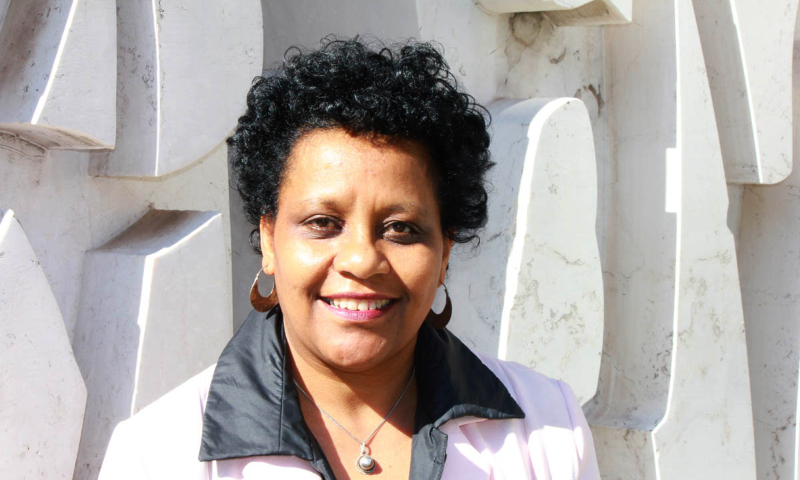Ribka Sibhatu writes in Tigrinya and Italian. Her poetry reflects on the immigrant experience in Europe. Born in Asmara, Eritrea, in 1962, she was imprisoned for a year in 1979 and then fled the country in 1980. Travelling first to Ethiopia and then to France, Ribka Sibhatu moved to Italy in 1996 and settled in Rome, where she has lived ever since. She holds a Ph. D in communication studies from Rome’s La Sapienza.
Ribka Sibhatu’s first published work was Aulò! Canto Poesia dall’Eritrea (Sinnos, 1993), a collection of lyrics and prose poems originally written in Tigrinya and translated by the author into Italian. This bilingual meditation on her past life in Eritrea and subsequent experience as a migrant was followed in 1999 by Il Cittadino che non c’è. L’immigrazione nei media Italiani (EdUP): a sociological look at the Italian media’s coverage of immigrant communities. In 2012 she published Il numero esatto delle stelle e altre fiabe eritree, Sinnos A bilingual Italian-Tigrigna collection of Eritrean fairy tales. Ribka Sibhatu speaks five languages and currently works as a trainer, consultant and interpreter of Italian Court and other international organizations.
Her 2009 collection Aulò has been likened to Walt Whitman’s Leaves of Grass and offers a remarkable personal achievement in giving lyric expression to the Eritrean oral poetic tradition. The former editor of Modern Poetry in Translation, Sasha Dugdale, has written: “Ribka is a really important activist-poet for our times”.

